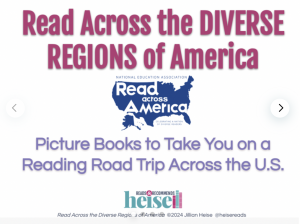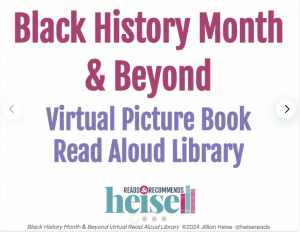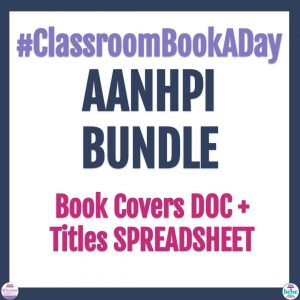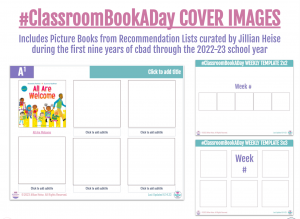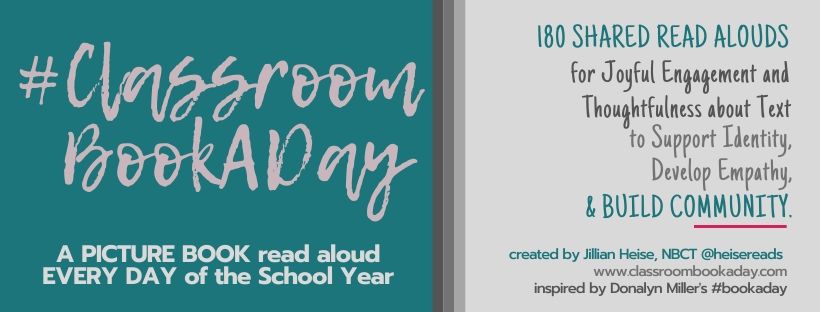
I’d like to clarify some things about my goals and intentions for this group. As #classroombookaday has grown and evolved over the past five years, so have I as an educator and human. Some of you are very new to this group. Perhaps you were directed here as a place to get good picture book recommendations. And that’s fair, but first and foremost this is a group for people choosing to read aloud a picture book every day of the school year. With that comes a responsibility to our students. I look back at my first year’s display and see the problematic choices I made in the books I chose. Now that I know better than to have mostly white authors, I am trying to do better (shoutout to Maya Angelou!).
Identities are not “controversial topics”
As creator of this group & #classroombookaday, I want to reply to a comment that “This FB page is supposed to be about using books in the classroom, not to argue about controversial topics. That does not help anybody and nobody wins.” I unequivocally stand by not debating the humanity of my students & the critical need to support their lived experiences & identities through the books we share for #classroombookaday read alouds. Identities are not “controversial topics” – they are lived experiences and, especially as educators, students who live them, live with them, know them, or don’t know them deserve our love and respect. Even better if we can facilitate that through the books we choose to share in read alouds.
As I work on myself and learn more perspectives about being an anti-racist, anti-bias teacher, I reflect on how my choices in books for #classroombookaday can support or work against that goal. I reflect on the overt & subtle harm that can be caused to the children in front of me each day with the choices I make. Because this is about the kids. If my goal is to build community, support student identity and lived experiences, and help kids develop empathy, then my choices need to reflect that purpose. I cannot ignore what BIPOC scholars share about problematic content and ideas in picture books. I understand that we can’t be limited by a single story and that no one person represents the feelings of all, but if even one BIPOC person who has done work around kidlit points out harmful content, I need to consider it and learn to look at books through a more critical lens. I am constantly learning and still miss things all the time. I make mistakes when analyzing books, but I listen to the critiques, learn from them, and move on to the next book with a deeper understanding.
I reflect on the overt & subtle harm that can be caused to the children in front of me each day with the choices I make. Because this is about the kids.
If you have seen me present in the last few years, you know I don’t do so without a section on critical analysis and inclusive book selection. Here’s the thing: when we have 180 chances to impact children’s understanding and empathy and self-image and global perspective, we need to take every chance we can to support them as accepting human beings who will add to our society. Choosing not to share certain identities is not supporting the goal of growing community. ALL of these conversations are important within the context of participating in #classroombookaday! And whether people speak up or not, I know that by watching these convos perspectives are changed and stances toward the need for diversity enhanced and clarified. So the educators in this group are helped, and our students are the ones who win by being treated as valued members of our society and classrooms who can understand that not everyone is like them and be more accepting of that.
To be clear: There is no place for bigoted or hateful speech or actions or statements within this group, and I will moderate accordingly. There is a place for thoughtful discussion and sharing of ideas around books that support anti-bias, anti-racist teaching and critical selection of inclusive books. What you choose to do with that information and those conversations in your own classroom and choices of books is up to you. But please don’t discount a book because you feel a marginalized identity is not appropriate for elementary school children – it is and they are.
There is no agree to disagree on bigoted statements or erasing marginalized groups or perpetuating negative stereotypes or causing harm to children.
As Admin of this group, and as stated in the group guidelines, it is my right to choose not to approve a post that does not align with these purposes, to shut down commenting, or hide comments that cross into hate speech. If a book has been critiqued as problematic, that discussion needs to happen, but implicit support is inferred by an uncritical post with a picture. When I first started on this learning, I often got defensive about being pushed out of my comfort zone and having my privilege pointed out to me and held onto ideas and books that I shouldn’t have, but that was then also actively choosing to harm kids. Something we all need to reflect on. This isn’t about agreeing with everything I think, but about supporting inclusiveness, students as multi-faceted human beings, and doing right by kids living in this society. There is no agree to disagree on bigoted statements or erasing marginalized groups or perpetuating negative stereotypes or causing harm to children. And please remember that comments made toward identities can be hurtful and harmful, and you don’t know the identities or lived experiences of those in this group either.
Thank you for being part of this, supporting #classroombookaday, and striving to do right by ALL kids. 💕
You might also find this post sharing a twitter thread helpful: 12 Steps to Edugrowth When Called In




















